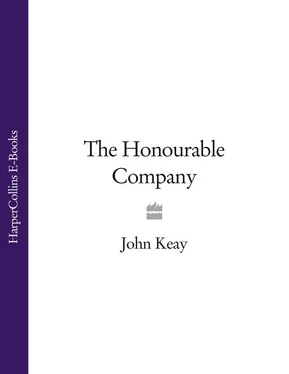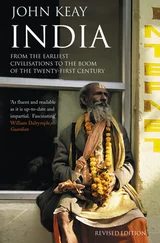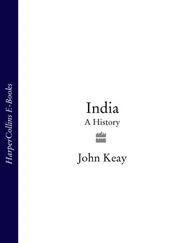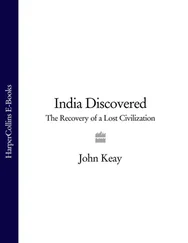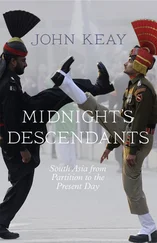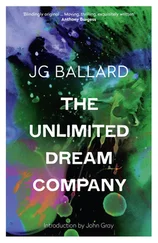Wherever English shipping called, the argument for free trade would be vigorously rehearsed. It was quite simple. In His ‘infinite and unsearchable wisdom’, according to the text of Queen Elizabeth’s standard letter of introduction to eastern princes, God had so ordained matters that no nation was self-sufficient and that ‘out of the abundance of ffruit which some region[s] enjoyeth, the necessitie or wante of others should be supplied’. Thus ‘severall and ffar remote countries’ should have ‘traffique’ with one another and ‘by their interchange of commodities’ should become friends. ‘The Spaniard and the Portingal’, on the other hand, prohibited multilateral exchange and insisted on exclusive trading rights. Such rights, if granted, would be interpreted as tantamount to a surrender of sovereignty. Any prince, warned the Queen’s letter – she could not be more precise because these letters were unaddressed and it was up to whoever delivered them to fill in the name of the local potentate – any prince who traded with only one European nation must expect a degree of political subordination to that nation.
The first prince to receive one of these unconventional and unsolicited royal circulars was most impressed; the sentiments could have been his own. Ala-uddin Shah was Sultan of Aceh, an important city-state on the north-western tip of Sumatra; the date was June 1602; and the bearer of the letter was James Lancaster, commander of the East India Company’s first fleet.
Lancaster’s career well illustrates the momentous events which immediately preceded the foundation of the Company. Born at Basingstoke in the mid-1550s, he had somehow found his way to Portugal where he quickly amassed both wealth and experience as a merchant and soldier. Then in 1580 the Portuguese crown passed to Philip II of Spain. As a result of this dynastic union Spain’s enemies, notably England and Holland, became those of Portugal too. Lisbon was soon closed to English shipping and Lancaster, like other Englishmen, left in a hurry; it seems that he may well have lost property and rank by this unexpected turn of events. The union also cut off the supply of Portuguese spices to Spain’s enemies, thus giving the Dutch and English an incentive to go seek them at source; and it also freed English adventurers from the constraints of the traditional Anglo-Portuguese alliance. Portuguese ships and Portuguese trade routes were now fair game.
Coincidentally it was also in 1580 that Francis Drake returned from his voyage round the world. En route he had called at the clove-rich island of Ternate, one of the Moluccas, and at Java, and had had no difficulty in procuring a cargo. This was thought most encouraging; evidently the Portuguese in the East were neither as well established nor as vigilant as expected. In 1582 an English fleet was sent to renew contacts. It failed to find the Cape of Good Hope, let alone cross the Indian Ocean; this was less encouraging. But in 1587 Drake’s raids in the eastern Atlantic resulted in the capture of a Portuguese carrack, or galleon. The ease with which the giant vessel was overpowered showed, according to the contemporary chronicler Richard Hakluyt, that ‘carracks were no such bugs that they might be taken’; when its cargo was valued at over £100,000 Elizabethan seafarers took up bug hunting in earnest.
Lancaster may well have been serving under Drake at this time. Alternatively he may have been involved in the Levant Company, which, like the Muscovy Company, was another new London syndicate trading, in this case, with the Middle East; from its ranks would come many of the prime movers in the East India Company. At all events, by 1588 Lancaster had learnt something of navigation and had command of a Levant Company ship, the Edward Bonaventure.
In her, he like many others who would sail to the East put to sea to oppose the Invincible Armada. For a generation of English seamen the defeat of the Armada was a turning point. To them, and to all who cared to line the cliffs along the English Channel during the last week of July 1588, it demonstrated that the earlier successes of Drake and Raleigh were not just isolated flashes of brilliance-cum-effrontery; and that well armed, well manned, and cleverly sailed, the smaller English ships were more than a match for the great galleons and carracks. With national self-esteem fluttering at the masthead, the English were now ready to carry their challenge for maritime supremacy down the Atlantic and beyond. Often news of the Armada’s defeat would precede them. Sultan Ala-uddin of Aceh’s gracious reception of his unknown visitors would owe a good deal to rumours that these were the selfsame people who had repelled the most formidable navy either east or west had ever seen. And when the Sultan actually congratulated Lancaster on the affair, the Englishman visibly blushed with delight.
Three years after the Armada, Lancaster again commanded the Edward Bonaventure. She was one of three ‘tall ships’ and she was sailing south from Plymouth, heading at last for the Cape and the East Indies. This voyage, which lasted from 1591 to 1594, is generally regarded as a reconnaissance for those of the East India Company. A Dutch fleet sailed in its wake and the second spice race had begun. But whereas the Dutch voyage would prove a resounding success, that of the English proved the grimmest of odysseys and the most disastrous of investments; if anything it ought finally to have discredited the whole idea of pursuing eastern trade.
Even on the first leg down the African coast things had gone badly wrong. While the ships drifted from one Atlantic doldrum to another, so many of those aboard succumbed to scurvy that from the Cape one of the ships had to be sent home with fifty sick men aboard. In the event they were the lucky ones. The two remaining ships pushed on around the coast of Africa. Somewhere off Mozambique the flagship was lost with all hands in a storm which also killed some of the Bonaventure’s men. Lancaster repaired to the Comoro Islands where a further thirty of his followers were massacred by the natives. He continued on to Zanzibar and, by-passing India, eventually reached Penang and the Malay peninsula.
Neither here nor anywhere else was any attempt made to open honest trade; it was easier to plunder Portuguese ships and easier still to waylay Burmese and Indian vessels which paid for, but rarely enjoyed, Portuguese protection. No doubt Lancaster was under pressure from his decimated and prize-hungry crew. Ever a considerate commander, he openly discussed his plans with his officers and showed unusual solicitude for his men. Thus it was their representations which eventually forced him to head for home, and which, when provisions ran low in the Atlantic, persuaded him to visit the West Indies. There the Bonaventure plus her ill-gotten cargo was finally lost, and the remnant of her crew shipwrecked. Out of 198 men who had rounded the Cape only twenty-five would ever make it back to England; two out of three ships had been lost; and the only cargo to reach home was that boatload of scurvy victims.
Lancaster was among the survivors. Within a few months of his return he was sailing to Brazil in command of a much more successful expedition which managed to storm Pernambuco (Recife) and to get away with so much loot, including the contents of another carrack laden with spices, that additional ships had to be chartered to carry it all home. Undoubtedly no Englishman had more experience of outwitting the Portuguese or of navigation in the Indian Ocean. Lancaster was the obvious choice as commander of the first East India Company fleet.
He had, however, done nothing to persuade merchants and investors that expeditions in search of eastern trade were worthwhile. It was the Dutch with a succession of rewarding voyages to the East Indies in the late 1590s who showed what could be achieved. They too had first hoped to find a north-eastern passage to the Indies, had been duly disappointed, and in 1595 had tried their luck with a small fleet sent round the Cape of Good Hope. A Dutch agency, or ‘factory’, had been established at Bantam in western Java, and the fleet returned home laden with spices. In rapid succession new Dutch syndicates were formed; by 1598 several fleets totalling some eleven vessels were sailing for the Indies. It was one of these which established the Dutch presence at Neira, the nutmeg capital of the Banda Islands. By the end of the century the Dutch had opened further factories in the Moluccas and on the Indian peninsula and had begun trading with Sumatra, Sri Lanka, and the coast of China.
Читать дальше
